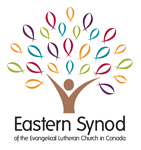Dear Friends in Christ,
As we approach the 2021 National Indigenous People’s Day, we offer gratitude to the Creator for the gift of Mother Earth, and to the First Peoples of this land for the wisdom they offer us as we walk together in solidarity with creation and with those who suffer the effects of colonization, racism, ableism, ageism, and sexism in its various guises.
Since the 2020 National Indigenous People’s Day, Turtle Island has witnessed a sobering sequence of injustices, injuries and inequities directly bearing upon First Nations, Métis, and Inuit people. News reels have documented the outrageous treatment of Joyce Echaquan, the ongoing effects of land grabs in Caledonia and beyond, the unconscionable continuance of boil-water advisories across this land, the rampant racism levelled against the Mi’kmaq of Sipekne’katik First Nation for exercising their fishing rights, the ongoing inordinate incarceration of Indigenous people, and the repeated disappearance and death of Indigenous women, girls and 2SLGBTQQIA people. Unfortunately, what has been reported is but the tip of the iceberg of what is experienced.
In response to this, people of good faith are quick to respond: “What then should we do?” (Luke 3:10) John the Baptist gives us a good list to those who asked him the same question by commending charity, justice, and peace. But the First Peoples of this land also remind us that too often in our haste to act we fail to attend to our colonial attitudes and its disastrous effects in even our “good works.” We do well to begin with the words of the Opaskwayak Cree scholar Shawn Wilson:
It is your job to listen, to internalize and to be aware. The conclusions that are right for you will come to you when they are ready. It would not be polite to force them into coming too soon or to hang around after they are ready to move on.[1]
It is sometimes so very difficult for us to be patient and attentive, but the First Peoples of Turtle Island can school us in this task. There is a plethora of material available for us, ready at hand, to begin the work we need to do of listening and paying attention in the two links below. This does not give us license to do nothing, nor to eschew responsibilities. But until we have sat with both the discomfort of our privilege and the marvel of Indigenous resilience for a time, we are not capable of hearing what we need to hear in order to walk with integrity alongside of this community that has been marginalized, criminalized, and executed by systems that benefit the majority on the backs of Indigenous and other racialized people.
The Circle of Reconciliation and Justice invites you to make use of this, and other materials, as you prayerfully consider how you might do justice, love kindness, and walk humbly with your God (Micah 6:8).
Eastern Synod of the ELCIC CRJ Resource Page: https://easternsynod.org/circle-for-reconciliation-and-justice/
Anglican Church of Canada – Indigenous Ministries: https://www.anglican.ca/im/
[1] Shawn Wilson, Research is Ceremony: Indigenous Research Methods (Winnipeg: Fernwood Publishing, 2008), 134.
